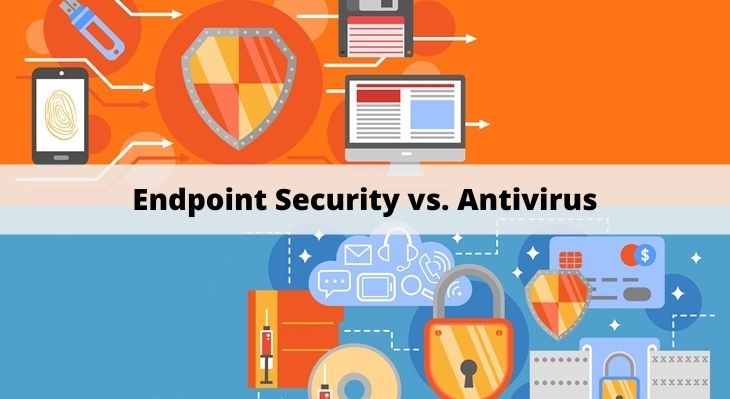Endpoint Security is often mistaken with various other security tools, such as network security, firewall, and even antivirus.
Although the purpose of these security tools is the same, there is a significant difference between endpoint security and antivirus.
In this article, we’ll know what these security solutions are & list the key differences between endpoint security and antivirus.
Comparison of Endpoint Security and Antivirus
Endpoint Security in a Nutshell
Endpoint security is nothing more than ensuring the security of computers and other devices connected to the corporate network.
It is a security solution that has the ability to detect anything from malicious URLs to web attack codes.
Endpoint security aims to ensure that all services connected to a network are protected against various types of cyberattacks.
Advanced technologies such as Artificial Intelligence and Machine learning intervene in these security systems, which can detect anomalous activities and counter them immediately.
They specialize in advanced threats such as Ransomware or Phishing, in addition to being effective against malware and viruses in general with much higher effectiveness as compared to antivirus.
Also Discover: 7 Adware removal tools: You should know about
Antivirus in a Nutshell
An antivirus is a software that is responsible for detecting and suppressing computer viruses.
Advanced antivirus solutions are more robust and also have protection against malware in addition to preventive actions with the aid of artificial intelligence.
In recent years it has incorporated other advanced functions such as blocking viruses, disinfecting files, and preventing them from being infected.
These programs, nowadays, also recognize other types of malware, although with many limitations, such as spyware, Trojans, pseudoviruses, worms, or rootkits, among others.
However, user mobility has reduced the effectiveness of this protection method.
Endpoint Security vs. Antivirus: Other Key Differences
Antivirus is one of the simplest security components a company can have, considering that the Endpoint Security solution is a much broader concept, including not only anti-malware but many security tools against different types of threats.
The key difference between endpoint security and antivirus is while antivirus is software that detects, prevents, and acts on the removal of malicious software programs on a device, endpoint security covers the entire infrastructure.
Endpoint Security contains not only anti-malware, common among antiviruses but many security tools against different types of threats.
With it, it is possible to maintain the integrity of the devices, the authentication of the user in order to preserve the safe endpoints, which is not included in the antivirus package.
Final Thoughts
Organizations are increasingly exposed to threats and need innovative solutions to improve their protection, even when users are on the move.
They need more effective security systems that increase user productivity, protect all devices in the organization without compromising their performance, and free IT, staff, from tedious unproductive tasks.
After reading this blog, it can be concluded that the endpoint security provides much more benefits to an organization over an antivirus solution.
You may also like to read:Security operations center best practices: You need to follow

